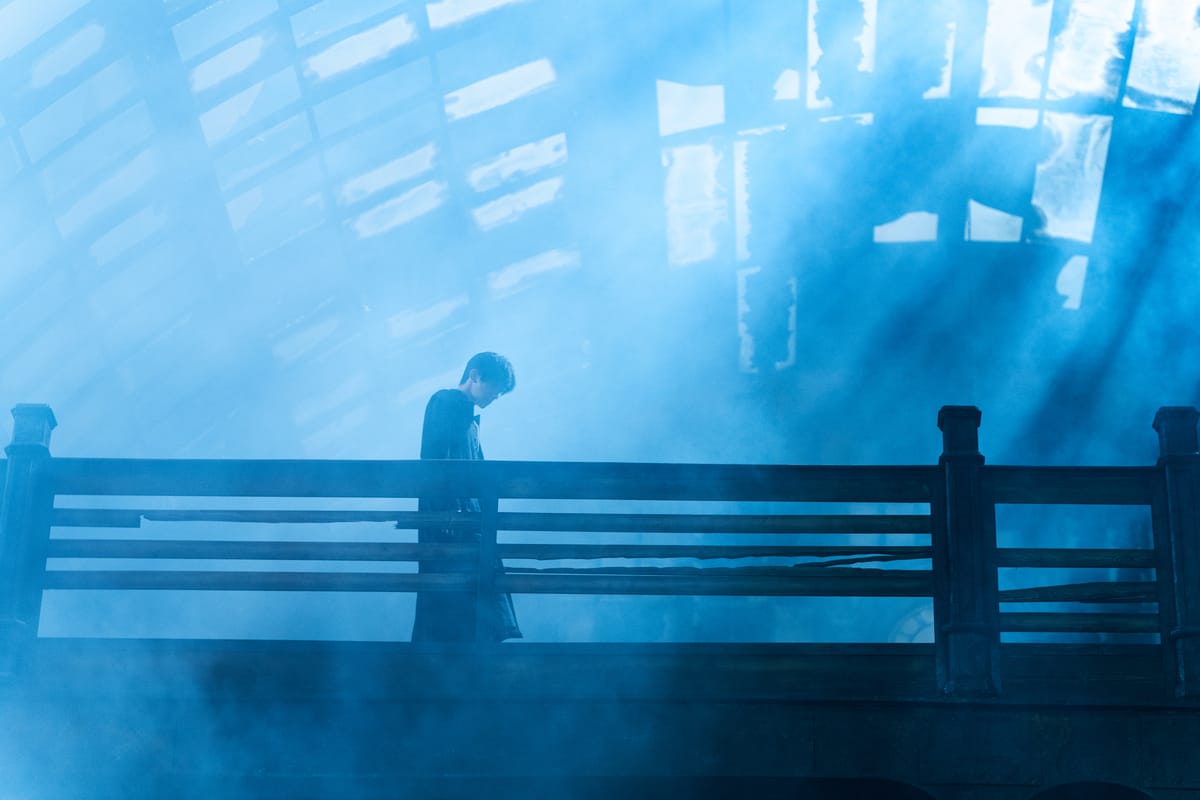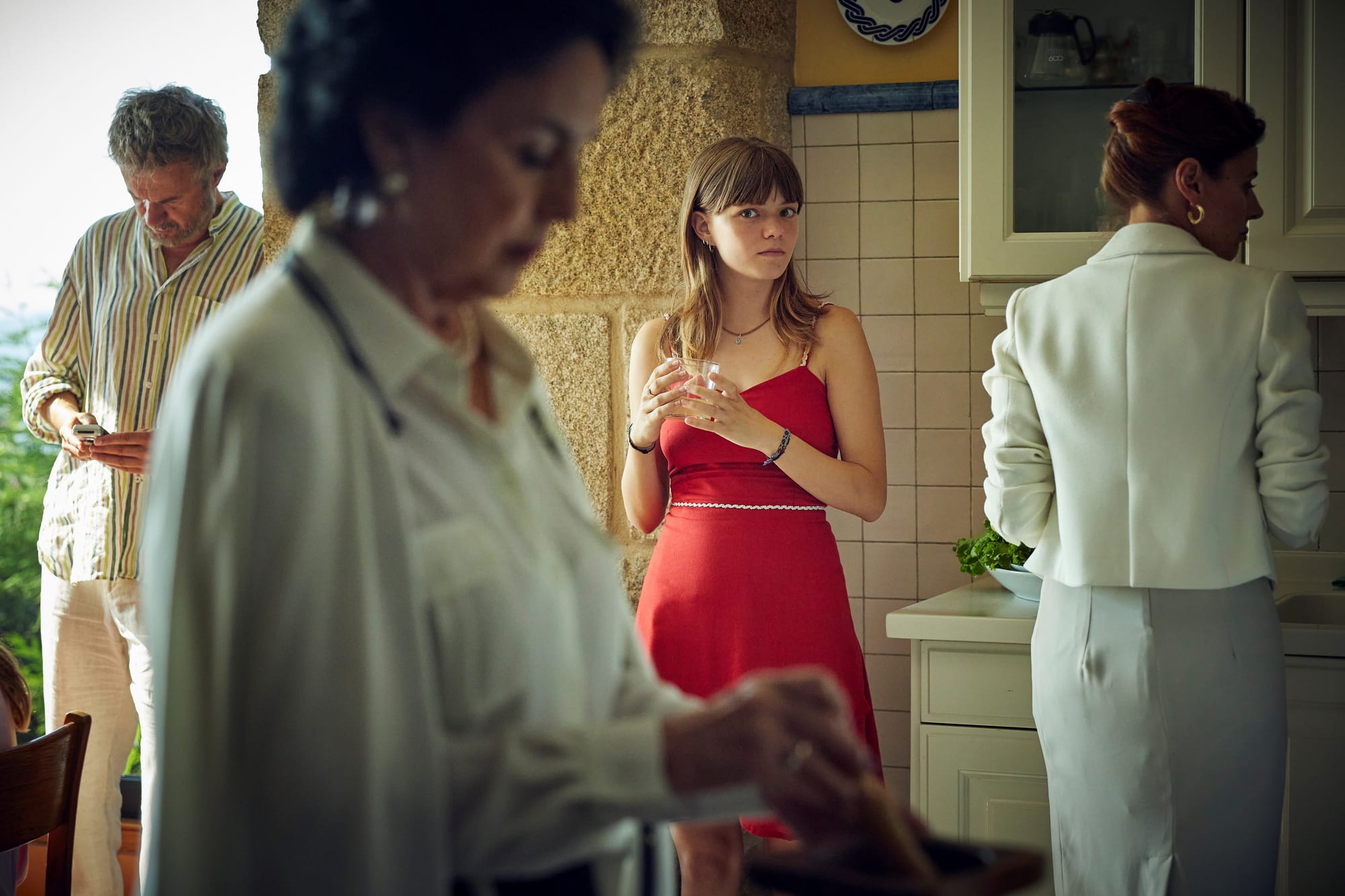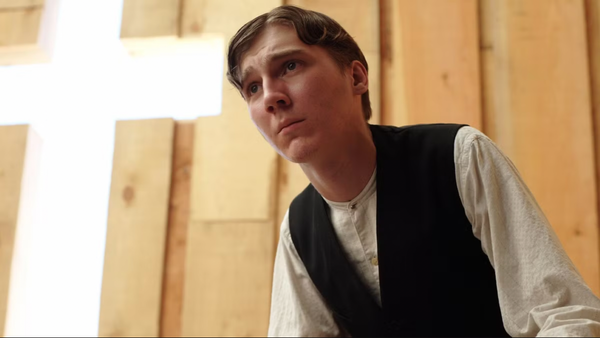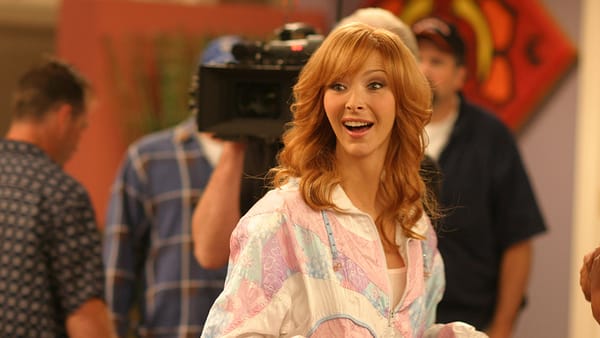Psycho. #50
Looking for the "best" "croissant" in Cannes this year.


For real, I go to Cannes every year and still haven’t had the chance to discover the best croissant. Where is it? (And also if you could do the same for crêpes it’s be great.) Thank you!
Am I right in interpreting your question metaphorically? You say that you haven’t discovered the best “croissant”, but you don’t mean anything quite so obvious as the humble everyday pastry — no, you are speaking about your search (and not just yours, but all of ours!) for the film, that elusive masterpiece, that will provide you with satisfaction. The platonic ideal of a film. You were crafty to say “croissant”: a clear reference to the Palme d’Or, i.e. a golden, crescent-shaped item, denoting a certain French ideal. Thank you for sending me this nifty little puzzle! I won’t let you down!
Of course, there is something like folly in making films — works of art, for god’s sake! — square off against one another for prizes. It seems like madness for a director like Carla Simón to compete with Bi Gan, the former being such a mild and searching artist, interested in sounding out family, country, traditions; and the latter being a showman, a sort of Houdini of the camera, whose work is shot through with a kind of demented vision, a questing spirit that leads him to seek out new formal challenges all the time.

Romerìa, the film by Simòn in this year’s competition at Cannes, is deceptive in its apparent simplicity: it follows a young filmmaker visiting her father’s home in the south of Spain, to find out more about his relationship with her biological mother, before both of them died of AIDS 18 or so years beforehand. Simón uses home video footage, her own mother’s diaries related in voiceover, and two actors repeated across the two timeframes, to create a fascinating mise en abyme, which paradoxically brings her parents to life and suggests we can never really connect with the past. The dead parents exist as a structuring absence here, glimpsed in certain family resemblances or guessed at in the way Simòn films the sea they knew so well; and there is, besides, a formal coup in a strange dance of death that the director orchestrates in one scene, which goes beyond her usual naturalistic vein. These questions add mystery to the film, and deepen its investigation of identity, family, creativity, history and place.
Send your questions anonymously to Caspar at this link, no personal information is collected.
Bi Gan’s Resurrection, at the polar opposite of Romerìa, is all about invention, and the act of creating; the power of dreams, too, in reconfiguring our world. In a sumptuous first section, adopting and reconfiguring silent film techniques, Bi introduces us to a world in which humanity has largely ceased to dream, save for a few rebels — Fantasmers — who continue to do so. This segment of the film, which is plotted in a hilariously, admirably unwieldy manner, features characters dancing through intricately designed sets that seem to fold and collapse into one another, each carrying a motif of circularity to reflect that section’s emphasis on one of the five senses, namely sight. Other segments take different eras and senses as their visual cue, and Bi deploys a veritable cornucopia of film references (Méliès, Nosferatu, The Lady from Shanghai) and genres to tell his overblown story about the limits and possibilities of human creativity. This is extremely full-blooded, risky cinema, carried off with brio, each shot (including one of Bi’s stunning trademark long takes) decorated and lit and blocked so beautifully, featuring so much detail to gorge on. There is verve here, and a heady, impassioned sense of romance; impossible not to feel wonder at the risks taken by Bi, and the heady opulence of his vision.
In the end, Juliette Binoche’s jury gave a special prize to Resurrection, and nothing to Romerìa — fair enough, do what you like — but what can we make of this idea of pitting films against one another? Does it help us to find the croissant?

Cannes is many things — maddening, busy, old-fashioned, glamorous, vain, overstuffed — but what it does best, and what other festivals are sometimes able to do, is to put films into conversation with one another, which throws into relief a particular director’s vision and means, and sharpens the viewer’s eye, prepares you to look at things in a different way. How would I feel about Bi’s film if I had not seen, before it, a lilting Spanish drama that turns its uncertainties into an asset, always questioning, advancing hypotheses, shying away from making definitive statements? Likewise, Resurrection helped me put Romerìa into a different perspective, because it recalibrated for me Carla Simòn’s examination of the dreamlike, and our desire as humans and artists to re-present our surroundings. The competitive element is not insignificant; I hope that it helps us create something like a useful pantheon for future generations of filmmakers, and that it rewards art at a moment when we dearly need to protect the artistic impulse from the advance of robots. But the competition is really just a pretext, in my view, a way of bringing artists into a fruitful dialogue with one another.
Did I find “the croissant” this year? Perhaps. I tried a number of ‘pastries’ — to use your helpful analogy! — and the one whose flavour and feel remained with me longest, which felt most accomplished and which I needed to tell people about as soon as I experienced it, was Oliver Laxe’s Sirāt, which I mentioned in last week’s column but which has stayed the course. I can’t believe some of the things I witnessed in this film, a kind of UFO bringing together dance music, vans, and a metaphorical journey through a sort of personal hell, all set during a kind of dystopian wartime. Laxe asks questions about our duty to one another, and about the precarity of human life; about the way we find solace for life’s travails in music, escapism, and fellow travelers. And this is done in a film that throbs with vitality, its sound mix pulsating like crazy, its bleached panoramas showing the unforgiving heat and dust of a godless landscape. What a gem — and what an experience cinema can still be, so surprising, and able to seize you right in the gut. That would be the one film that I can say I discovered this year, which I was not expecting much from and which most touched me.
Wait, what do “crêpes” mean in your analogy? Oh god. That’s rattled me. Perhaps you mean a return to the childlike? I don’t think I have time to get into that, at this stage of the column, but will have a think and potentially get back to you at a later stage. Thank you for writing in, and keep looking for that elusive croissant! Bye!
P.S. Philippe Tayac Patisserie & Salon de Thé, 131 Rue d’Antibes
Send your questions anonymously to Caspar at this link, no personal information is collected.



